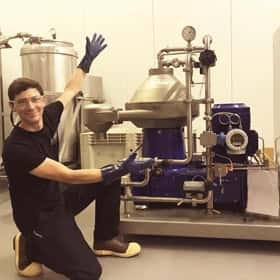
Normal
0
false
false
false
EN-US
JA
X-NONE
The Millennial generation often gets a bad rap regarding their willingness stay with a job for more than two years. But according to a recent Pew research report, the generation, born between 1980 and 2000, generally has a longer tenure at their jobs than Generation X. What’s more, the report finds that job tenure among 18- to 35-year-olds has risen since 2000, giving statistical heft to belie the clichéd job-hopping.
The April report titled, “Millennials aren’t job-hopping any faster than Generation X did,” states that in January 2016, 63.4 percent of employed U.S. Millennials worked for their current employer for at least 13 months. In February 2000, 59.9 percent of respondents of a similar age, the Gen Xers, reported similar job tenure. Those with tenures of more than five years were about even, at 22 percent for Millennials in 2016 and 21.8 percent for Gen X workers in 2000.
Pew cites higher levels of education than Gen X as one contributing factor, but also noted that, overall, Americans are staying in place at their jobs more than the previous generation.
Despite the data, Millennials are often defined by media stereotypes associated with a generation raised in an age of ubiquitous technology available at its fingertips, regardless of education or socio-economic status. “It’s tough to generalize, but I think it’s both perception and statistics,” says Rachelle Logan, human resources manager at Mendocino Wine Company in Ukiah.
“There are different expectations. When I think of older generations, I think of people who worked 14 hours a day and stayed with the company for 30 years and left with a pension,” she says. “But it’s a whole different world than it was 30 years ago. Technology has a lot of influence on the perception of the Millennial always on their phones and needing a lot of attention.”
Logan herself is a Gen Xer—born between 1965 and 1980—and sees a great amount of potential collaborating with the generation now coming of age. “We have so much to learn from the younger generation. I’ve been working 25 years now and I’ve seen people get set in their ways of doing things and not thinking outside the box,” she explains. “The Millennial generation feels like a mover and shaker generation: They’re entrepreneurial and always looking for opportunities.”
Seeking job security
Nicole Smartt, vice president of Star Staffing in Petaluma, believes that employment trends and the desires of the worker in any given generation can be attributed in part to the circumstances one grows up in as well as the age of the individual.
Smartt offers advice to employers seeking to attract and retain top employees in the current job market.
“You can’t very well compare the life experiences of someone who entered the workplace in 1983 with someone who entered it 20 years later,” Smartt says. “Generation—or what’s going on in the world at a given time—must be factored into the equation.”
She adds that Millennials are not very different from their predecessors on a human scale. “Like generations before them, Millennials want to develop their careers, possibly have a home and family and, generally, improve their quality of life,” Smartt says. “If they have managers who help invest in that development, it makes it much easier for Millennials to remain with that company over the competition.”
Unemployment numbers are down across the job spectrum, so it has become more challenging to recruit and retain Millennials, even in the sexier public service industries. Yet despite dynamic growth in the wine and craft beer sectors, it’s often difficult to offer adequate compensation for modern hospitality workers.
According to a 2017 Wine and Craft Beer Industry Insider report by the Sonoma County Economic Development Board, wine sales increased by 4 percent in 2016. Total craft beer sales in the U.S. rose 10 percent in 2016 and now account for more than one-fifth of beer sales. In Sonoma County, the number of craft breweries increased by one-third in just three years.
Millennials are both driving the market and providing labor and leadership for a bustling tourism industry focused on world-class wine and internationally acclaimed beers, such as Russian River Brewing Co’s Pliny the Younger, which drew nearly 10,000 tourists to Sonoma County in 2016, adding an estimated $4.9 million to the local economy.
Therefore, Smartt says, production positions are at a premium and recruiters are struggling to fill positions in a booming industry. But they’re not just looking for “warm bodies” to fill these positions, they are now seeking “people who can adapt and think and learn multiple roles.”
“And that is something that appeals to Millennials,” she explains. “As manufacturing works to reinvent itself and recruiters like myself educate a new generation of workers to the perks of this kind of employment, we may soon see inroads here.”
HenHouse Brewing Company
That dynamic is on display with HenHouse Brewing Company, an up-and-coming craft brewery that opened in 2012 in Petaluma and moved to Santa Rosa in 2016 to expand and open a tasting room featuring organic, seasonal sourdough pizza from Red Horse Pizza of Sebastopol.
Collin McDonnell, HenHouse co-founder and chief executive officer, reports that although they have been in business for six years, the company has only hired for two-and-a-half years. Recruiting has become an ongoing process for McDonnell, as the company has doubled in size in the past three years and expansion is expected to continue in the foreseeable future.
“I think the articles about Millennial job-hopping are hilarious,” McDonnell says. “On the employment front, the Pew report sounds a lot more like what we experience here.”
HenHouse currently has 30 employees, including the founders, and is in the process of hiring 10 more people by the end of the year, in an “exponential growth phase.”
But hiring is a constant part of McDonnell’s role as CEO. HenHouse finds itself in a continuous state of recruitment. “We’ve found that people don’t come to you; you have to go out and find the right people,” says McDonnell. “The company has an intensive hiring process that includes three rounds of interviews, followed by McDonnell’s tendency to work new employees particularly hard to discern if the hire is going to be fruitful.
“It’s better to run the people you know a little harder in the beginning than to hire the wrong person,” he says. “The focus is on finding a good fit, so we are always out there looking for people and trying to stay ahead on the recruiting.”
Like many small companies in the local service industries, HenHouse must think outside the box in order to retain top-notch employees, as the cost of living in Sonoma County can be prohibitive for a large section of the workforce. HenHouse pays above average wages and recently began offering an employee health care plan.
McDonnell says that is only part of what they do to keep their employees happy. At HenHouse, they put a lot of effort into creating a work culture with sufficient perks and a shared vision on where the organization might be headed. The company does both quarterly and annual reviews to guide employees and the organization through an impressive growth spurt and beyond.
“We’re team-oriented and want to create a roadmap so they can see how they’re going to progress,” says McDonnell. “It really seems to matter when they can see some way forward. It’s not necessarily about bigger pay and more responsibility: It’s about vision and to let people know where we’re going.”
HenHouse ownership sees health care as and ethical issue and part of being a good employer. Health care is also a way to keep employees performing at a top level, as they are not afraid to go to a doctor for minor injuries, and it’s also a way to engender trust.
In addition to traditional benefits, HenHouse runs on a 4/10 schedule—four-day weeks at 10 hours per day—and also distributes its product generously throughout the organization. “We don’t give away an infinite amount of beer, and we’ve found that our employees don’t overstep their boundaries,” McDonnell says. “It’s a matter of trust and that’s another important point: I hate asking people to trust me. As an employer, I don’t like to do it. If you ask people to trust you, you have to quickly show it. Not just promise, but deliver.”
Due to the high cost of wages, health care and various other associated expenses, small businesses must come up with creative ways to retain employees. Sharing “the fruits of their labor,” as HenHouse does with its beer, is one way to give employees a sense of ownership as well as saving them a few dollars here and there.
Logan says that Mendocino Wine Company has a similar program, offering fresh organic vegetables from their winery farm to employees twice a week, among other small perks to “provide additional support and healthy options for our workers and their families.”
“Retention for us is good, but we are in a unique situation,” she explains. “Opportunities (in Ukiah) can be limited, but we still have to be competitive.”
Job hunting
One aspect of job hunting that has changed the most is the use of technological tools Millennials have grown up with, generally as second nature.
Darren Inness, account manager at Artizen Staffing in Rohnert Park, says that with all the resources the modern job-seeker has at their fingertips, Millennials often go into interviews with more of an advantage than previous generations of job-seekers, and do their homework before they even sit down for the first interview.
“Millennials are more informed and have more information at their fingertips,” Inness says. “They have access to information about the workplace—such as salary info and work conditions—before they interview, through websites such as glassdoor.com, and they can go into an interview armed with information.”
Not only does that level the playing field between the employer and potential employee, but it also provides the impetus for companies to be the best they can possibly be to recruit the best possible people. On the other hand, employers can determine which applicant has sent out blanket, generic resumes, and which have done their homework and tailored resumes and cover letters to fit the job.
This glut of information allows the informed Millennial to know their relative worth and how competitive an employer’s wages might be. It also changes the dynamics of the workplace as employers have to offer unique and challenging environments for a generation eager to show off their talents for the right organization.
“Employers need to have a presence of community involvement and it helps if they have a good work/life balance for their employees,” Inness said. “Millennials are looking for a place they can work at and enjoy and have involvement in the community. They are looking to grow, but not necessarily at the place they work.”
According to Inness, another factor in the employees’ favor is a tight job market that allows the best candidates to pick and choose a satisfying career path. Since unemployment is low—3.9 percent as of mid-July, according to the California Economic Development Department—the top Millennial job hunter is being pursued by headhunters and receiving offers of employment from companies pursuing aggressive recruitment.
That further changes the employee-employer relationship, because with multiple job options, a motivated worker has more opportunities when seeking preferred workplace dynamics. “They’re looking for a boss who is more a coach than a dictator, but they are also looking for benefits,” Inness says. “It’s not just about ‘this job pays my bills,’ they are looking for a cultural fit.”
He adds that it is a candidate-driven job market with an opportunity for Millennial job seekers to make more money and get in the right place. “They’re more informed about everything,” Inness concludes. “The days of the boss yelling at the employee, and the employee taking it are over.”




